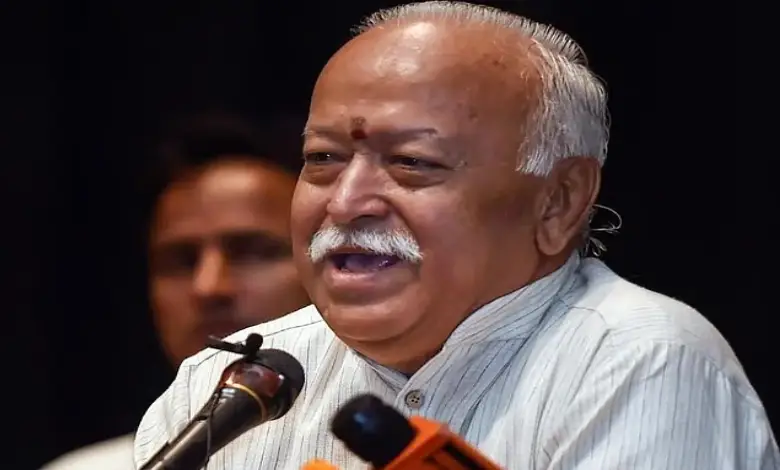Rashtriya Swayamsevak Sangh (RSS) chief Mohan Bhagwat, in what appeared to be a response to recent criticism from Congress leaders, clarified on Sunday that the RSS is officially recognised as a body of individuals under Indian law. His remarks came during an internal question-and-answer session organised by the Sangh on November 9, 2025.
Bhagwat’s statement was seen as an indirect rebuttal to Congress president Mallikarjun Kharge and his son, Karnataka minister Priyank Kharge, who have been questioning the RSS’s legal status and demanding a ban on its activities in public institutions.
“RSS Formed in 1925, Not Under the British”
Addressing attendees, Bhagwat recalled the organisation’s origins, saying, “RSS was established in 1925. Do you expect us to have registered with the British government?” He further explained that after independence, the Government of India never made registration mandatory for such organisations.
According to Bhagwat, both the Income Tax Department and Indian courts have legally recognised RSS as a body of individuals, providing it with income tax exemptions. “We were banned thrice. So, the government clearly recognised us if we didn’t exist, who did they ban?” he remarked.
“Not Registered, Yet Recognised”
Bhagwat pointed out that India’s legal framework allows organisations to function without formal registration if their operations are transparent and accountable. He noted, “There are many entities and traditions not registered under any act. Even Hindu Dharma is not registered.”
The Sangh chief’s comments were intended to address allegations that the RSS operates outside regulatory systems or without formal legitimacy.
Clarification on the Tricolour and the Saffron Flag
Responding to claims that the RSS only honours the saffron flag and not the national tricolour, Bhagwat emphasised that both symbols command deep respect within the organisation. “While we consider the saffron flag as our Guru, we always respect, offer tribute to, and protect the Indian tricolour,” he said.
His clarification followed remarks by Congress leaders who accused the RSS of prioritising its saffron flag over the national flag.
Political Context
The remarks came days after Congress president Mallikarjun Kharge suggested a ban on the RSS, accusing it of influencing government functions. His son, Priyank Kharge, also demanded that RSS activities be prohibited in public institutions and questioned the organisation’s funding and legal legitimacy.
Bhagwat’s firm response, referencing both judicial and administrative recognition, sought to underline that the RSS has long operated within the framework of Indian law and continues to hold legal and institutional acceptance.
